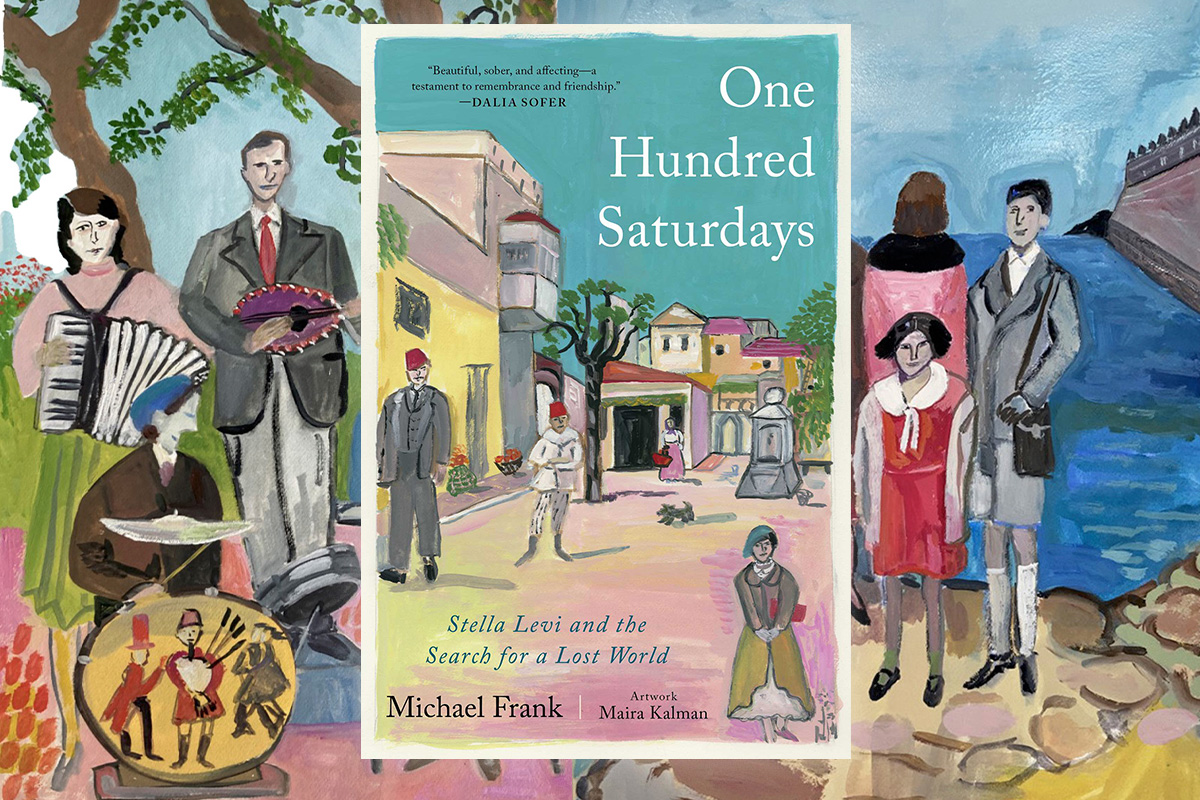At 14 years old, Stella Levi, a Sephardic Jewish girl living in the Juderia on the Mediterranean island of Rhodes, packed a suitcase. She didn’t have a trip planned; she did this as a gesture, signaling to her parents that she was intent on eventually leaving her ancient community to go to university in Italy. Stella did leave the island at 21, but not for the destination she expected: On July 23, 1944, she, her family and the nearly 1,700 other Jews of Rhodes were deported to Auschwitz. According to the United States Holocaust Memorial Museum, only 151 Rhodeslis survived, Stella among them.
Now, at 99 years old, Stella Levi has lived to see her life’s story in book form. “One Hundred Saturdays: Stella Levi and the Search for a Lost World” by writer Michael Frank debuted on September 6th.
The book, which chronicles 100 weekend meetings between Michael and Stella over the course of six years, is a poignant and absolutely necessary addition to the canon of Holocaust literature. Through Michael’s questions, which showcase trust and friendship that grows between interviewer and interviewee, and gorgeous illustrations from artist Maira Kalman, “One Hundred Saturdays” paints remarkable dual portraits. The first is of a vibrant Sephardic community which was decimated by the Nazis and is still often omitted from Holocaust histories. And the second is, of course, of Stella Levi and the chapters of her life: child, prisoner, survivor, wanderer, wife and mother and, now, storyteller.
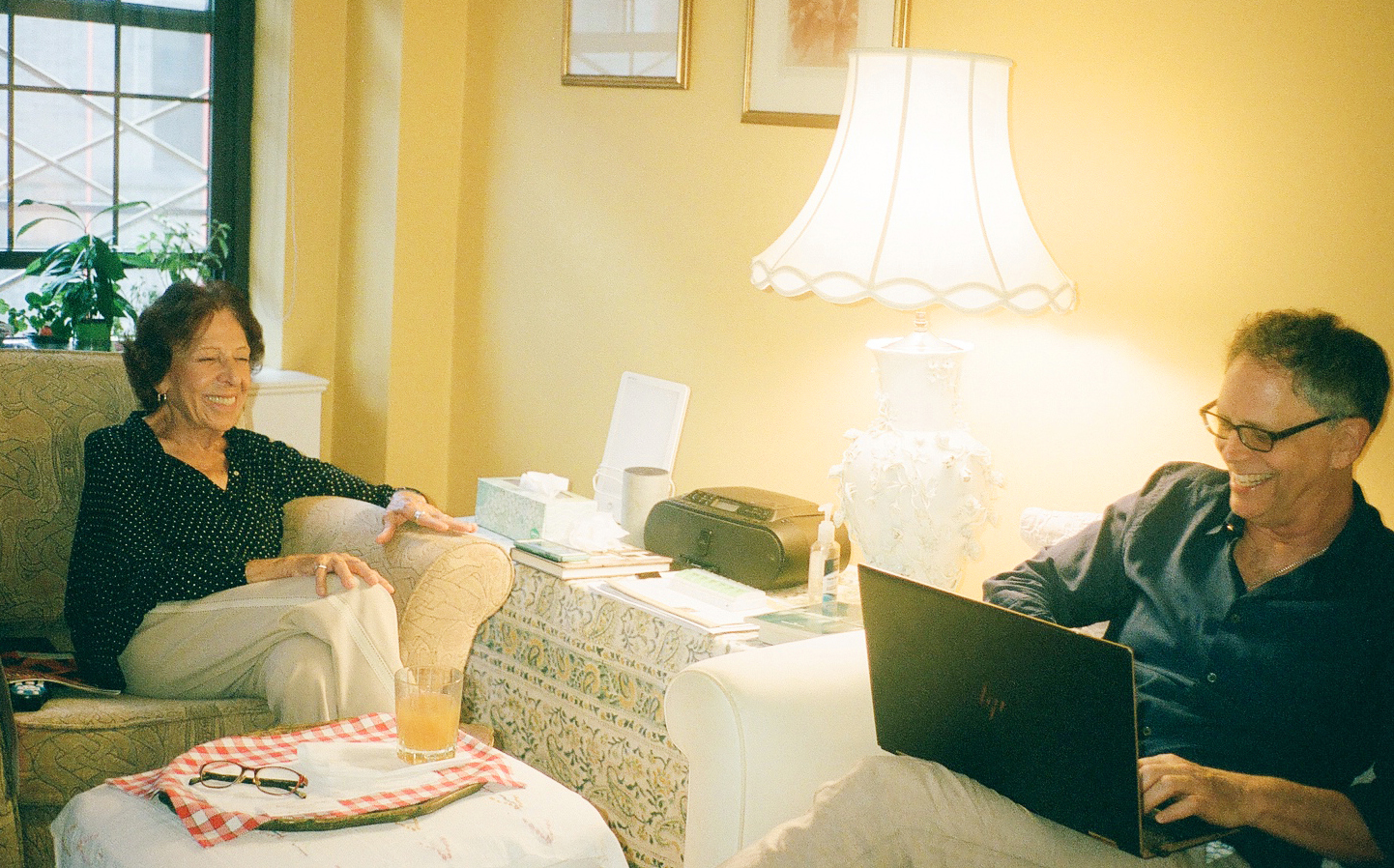
Stella and Michael recently spoke with Hey Alma via email to discuss remembering the Juderia of Rhodes and Stella’s next chapter.
This interview has been edited and condensed for clarity.
What does it mean to you to have “One Hundred Saturdays” released?
Stella Levi: Frankly: anxiety! Why? I never thought that anyone would be interested in my life or the story of an island that many people didn’t know much about, least of all the Jewish community there, where a young woman like me was born and grew up.
Michael Frank: It’s the gratifying end of a very long journey — seven years long by this point. And I’m so happy that Stella is here to see the book published.
Michael, what was the process of taking your conversations with Stella and shaping them into the book?
MF: 95 percent of my conversations with Stella were conducted in Italian, the language in which she attended school and with which, she says, she is most comfortable today. Now and then we spoke in French. I’ve come to the point that, with help, I can understand Judeo-Spanish, which she would drop in especially when we talked about the proverbs, sayings and songs she grew up with. I did not record our conversations; I took notes on my computer. Seeing the written answers helped me to ask follow-up questions.
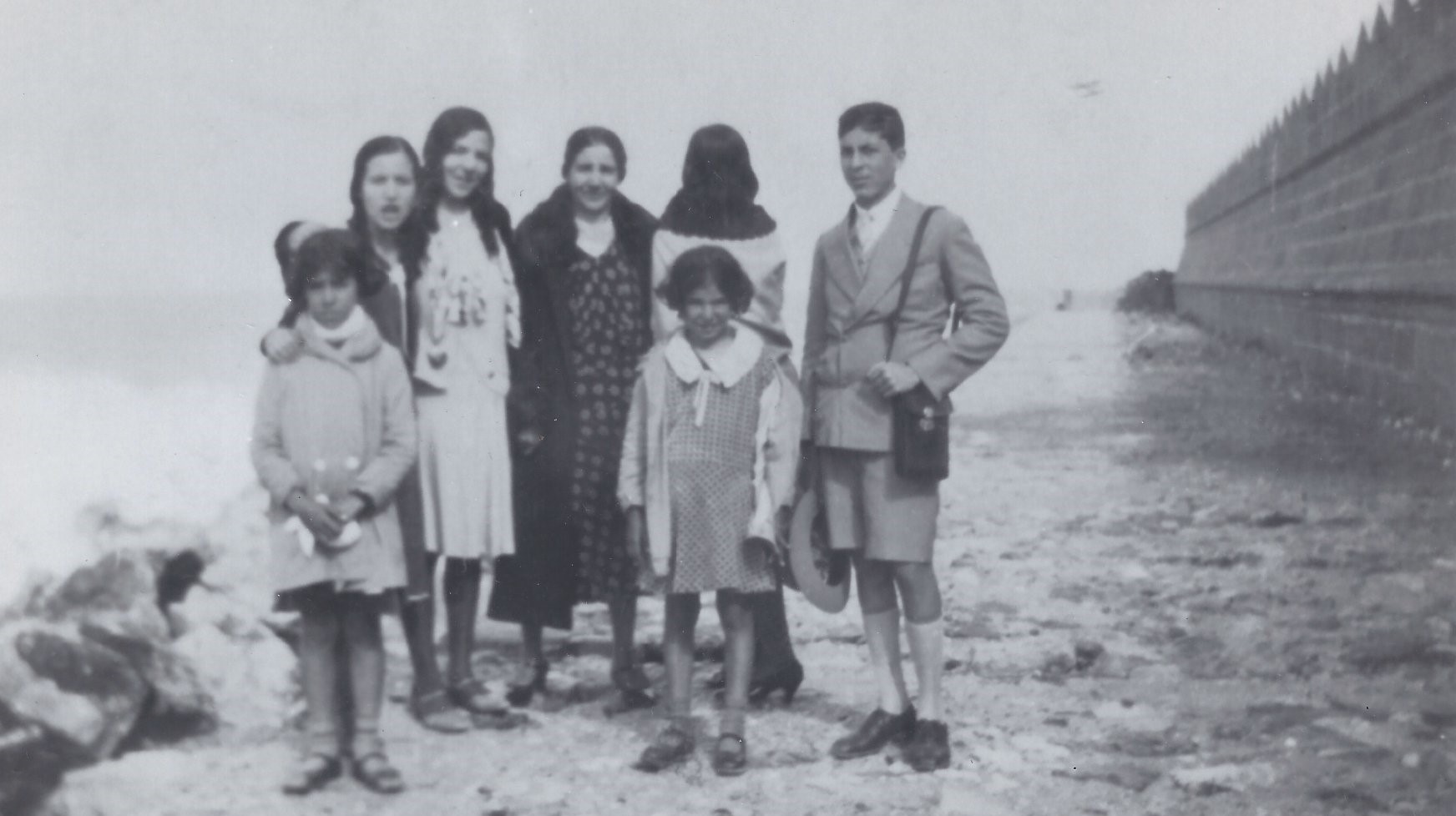
Stella, early in the book, Michael describes how you never wanted to be the kind of person who recounts their story of survival so often that it becomes mechanical. Through your conversations with him, have you come to any new thoughts or perspectives about your experience?
SL: Yes, I have — in fact, my conversations with Michael started a reevaluation of my life that continues to this day. Even this morning, I was thinking about the incredible, rapid transformation I underwent, as did the other young women from Rhodes, after we arrived at Auschwitz. Within a week — less, days — I went from being a “normal” young woman to one who quickly learned how to steal, how to plot, how to maximize my resources. How, in short, to survive — and survival meant doing things that in your regular life would have been absolutely repulsive to you.
The truth is that I only realized this, all this, in telling my story to Michael late in my life, in the way that I did. I began to think about how important it was that a person could transform herself so quickly in this way, how in the moment I managed to realize it was essential to pivot, to become this person who could cope. I discovered in myself this voglia— this will. If I’d thought to myself, I’m above all this, I’m too good to [do these kinds of things], I would never have made it.
And there’s another piece too: We stole, we connived, but we also sang. Every day, when we came back from “work,” the French women with whom we shared the barracks would say to us, “Come on, Italiennes, let’s sing, let’s dance.” Even for a few minutes, we became human again, and with our humanity we became even more ferocious. We thought — I thought — who will win? Me or Hitler?
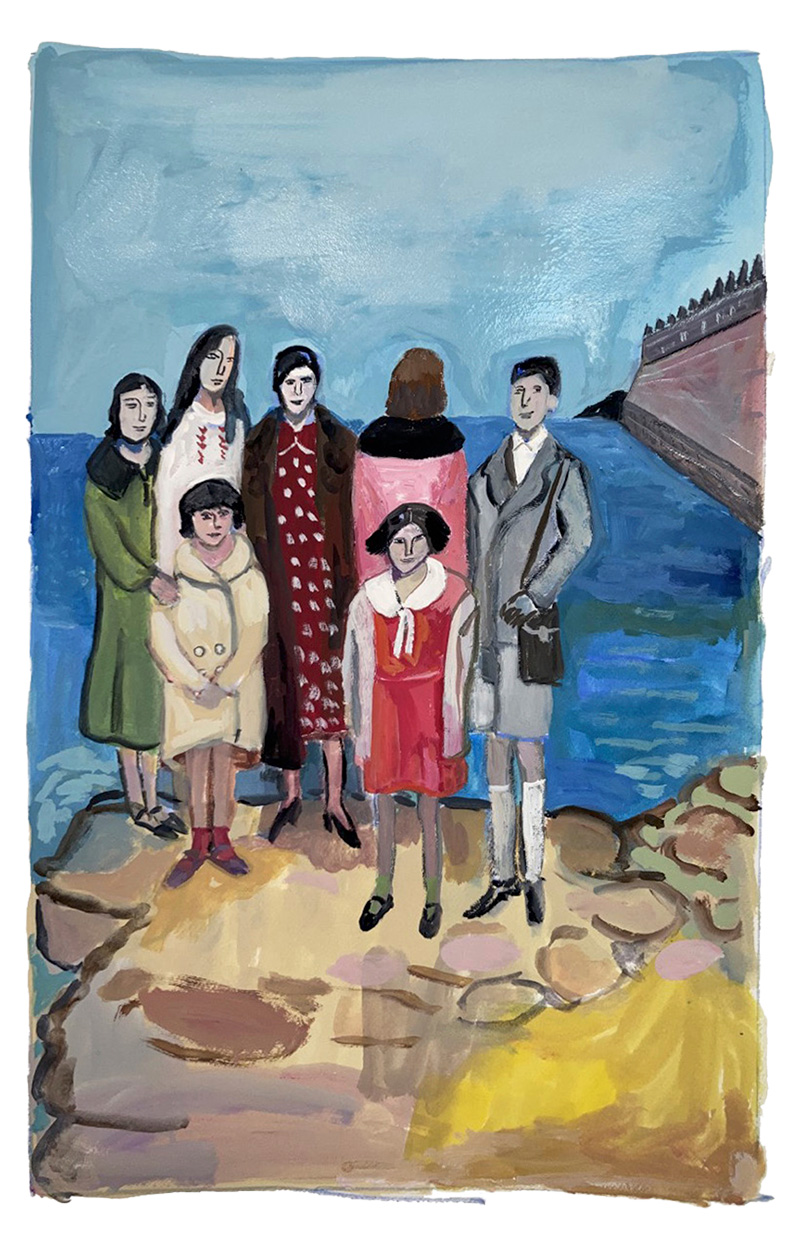
Michael, were there any memories Stella shared with you or moments with Stella that particularly stood out to you, but didn’t make the final book?
MF: You know, in the course of six years a lot of things get said, and some of them are probably best left unsaid. I mean — and don’t mean — to sound mysterious here, but naturally Stella now and then revealed details about her life that she later preferred I not share, and I respected that. We worked hard to develop our trust, and she did after all trust me with the most important pieces of her life, almost all of which are in the finished book.
Over the course of the book you and Stella seem to develop a friendship. How did being Stella’s friend play into your dynamic of interviewer and interviewee?
It allowed me to lose my patience with her! Especially near the end of our conversations — even after the manuscript was delivered — she would say, “Did I ever tell you…” or “I’m sure I told you…” and then dive into a new amazing or disturbing story. “Now you tell me this, Stella!” I’d say, rolling my eyes — to which she would respond with a Sphinx-like smile. That’s Stella.
Stella, does your story feel any less yours now that it’s joined this tradition of Holocaust literature through the book?
SL: Not at all. My story is my story. And I think it’s particularly mine — particularly individual, in its way —largely because I had the opportunity to speak about this lesser-known Sephardic Jewish community of Rhodes, about what life was like there before.
As someone who has written their own memoir, Michael, how does it feel to tell someone else’s life story?
MF: In a funny way, writing “One Hundred Saturdays” felt most like writing my novel, “What Is Missing.” While of course I needed to know, research and, as best I could, confirm the story of Stella’s life, I had to absorb — you might even say metabolize — it the way I did when I wrote my novel: I had to hear her voice as I would hear a character’s voice. I wanted the book to cast a spell the way the best novels do, to capture and hold your attention, and imagination, across a period of time.
Does being the steward of Stella’s life story weigh on you?
MF: Of course—how could it not?
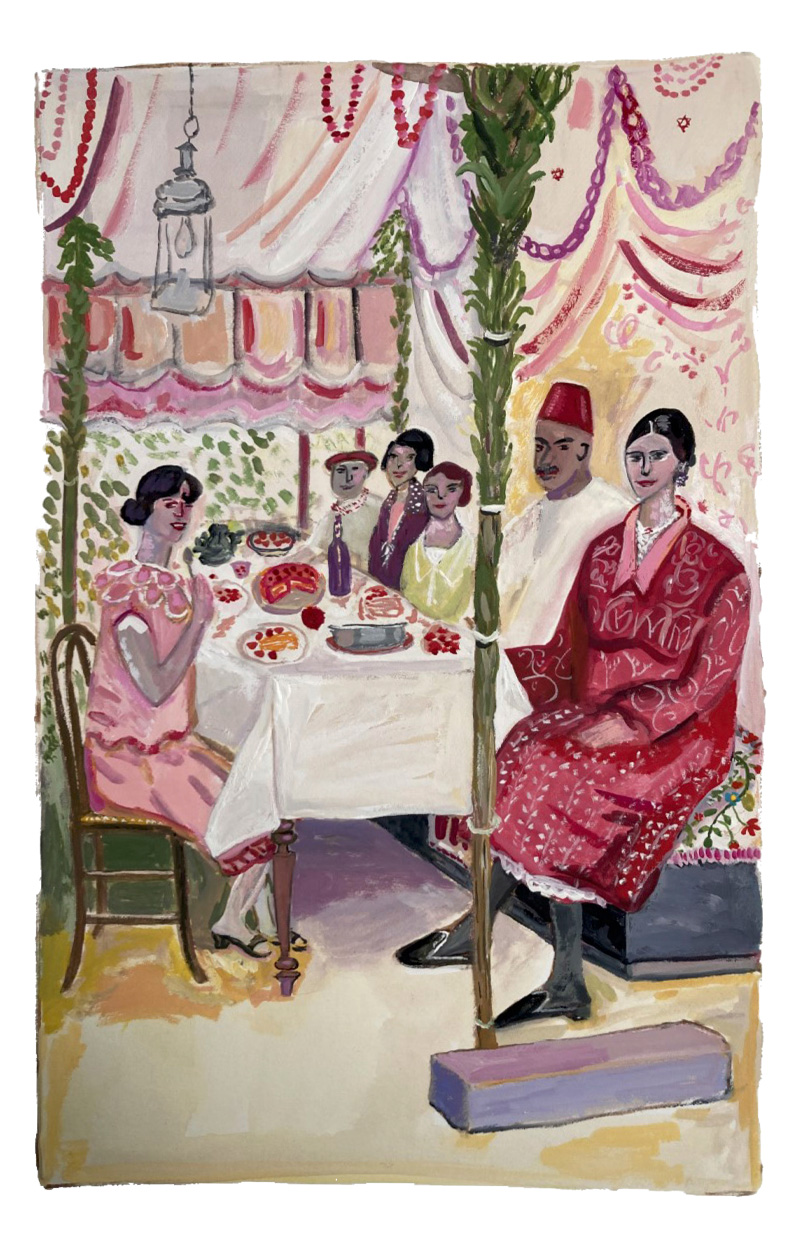
The full title of the book is “One Hundred Saturdays: Stella Levi and the Search for a Lost World.” Do you feel that you’ve found the Juderia of Rhodes again, or been able to reclaim it in some way, through the book?
SL: Not reclaim — remember. I can’t find the Juderia, because the Juderia is gone. The Nazis took care of that by deporting all 1,700-plus of us in July of 1944.
Michael, could you speak more to your experience visiting Rhodes with Stella? How did seeing the former Juderia in-person impact your conversations with Stella or the book?
MF: When I visited Stella in Rhodes in the summer of 2015, which has turned out — so far — to be the last time she returned to the island, I had known her only for a few months, and I had no idea that I was going to write a book about her. All I knew was that she had a story to tell and that I wanted, or needed, to hear it. But even then, I understood that we ought to go together to see the settings of the most important events in her life, among them the school she attended (and, under Mussolini’s 1938 racial laws, was kicked out of), the synagogue, her home and the building where she and the rest of the community were held prisoner for several nights before they were deported from the island in July of 1944.
Near the end of the visit, we even stood at almost the exact spot where these 1,700-plus people boarded the boats that took them away from the island, never to return — and this is where the book opens, with the two of us standing there. It was an indelible, haunting moment: a dock overlooking a swath of sea that, unless you know what happened there in 1944, looks perfectly ordinary. But it isn’t ordinary at all.
Stella, you say that your sister Selma was the one who kept the Jewish traditions in your family after the war. Since her passing, have you kept any Jewish holidays or traditions for yourself?
SL: Interestingly, now more than ever. I am not a religious person, but I do have a friend here in New York, several friends, who believe in tradition and, even more than that, ritual — the ritual of breaking the routine of the week and marking it with Shabbat. I believe that Shabbat was a great gift to humanity, to human beings, to be mandated to take this regular weekly pause from work. And not just to human beings, but to animals as well.
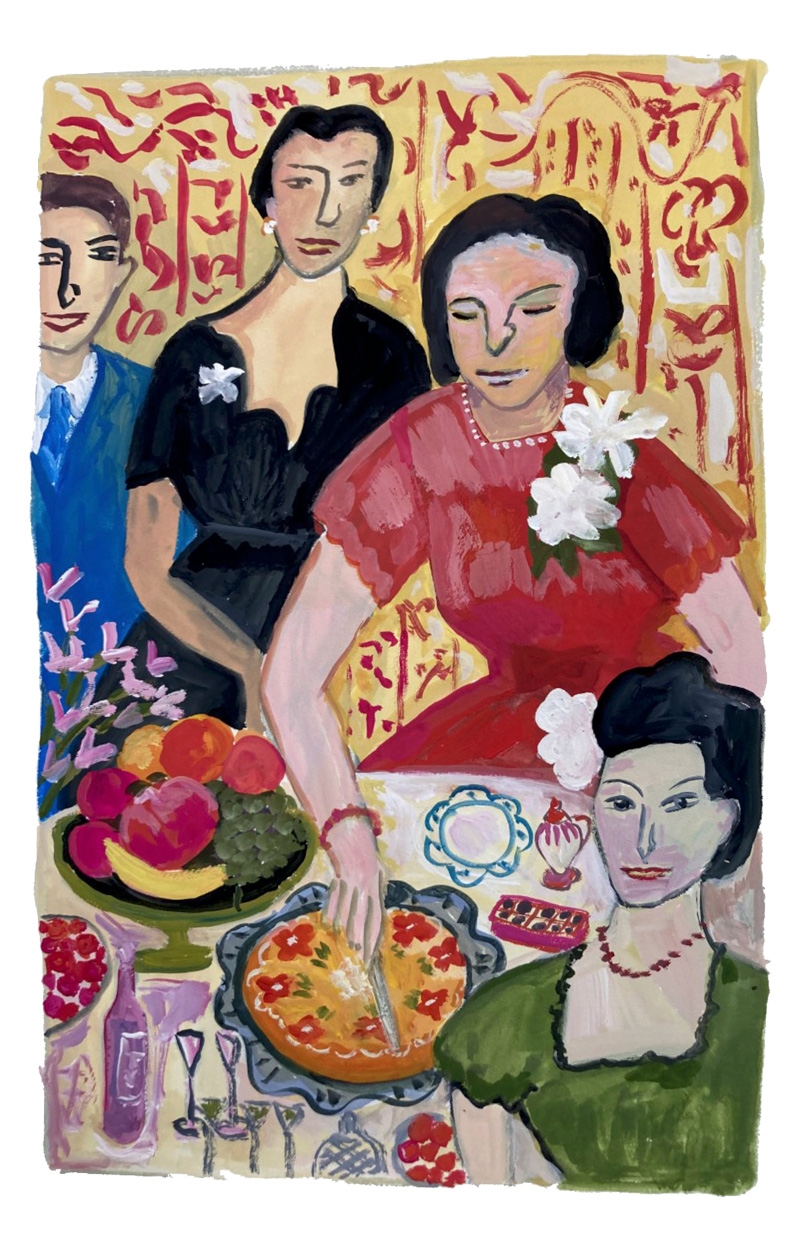
Has your family read the book? If so, what are their thoughts?
SL: Not yet — though I don’t think anyone will be surprised. My grandchildren have been to Rhodes, but they don’t know about my experience there in this kind of detail, as how could they? I spent more than six years speaking to Michael, after all!
Michael wrote that your life, Stella, is led in chapters — if you could choose, what would your next chapter look like?
SL: My next chapter? At nearly 100? (Laughing) Although I’m not physically able to, I wish I could contribute somehow — and I wish I knew how — to bringing people together more so that they could care more for each other and build a kinder society. We need kindness, we need equality — we need, desperately, a much more fair and caring country and world.
